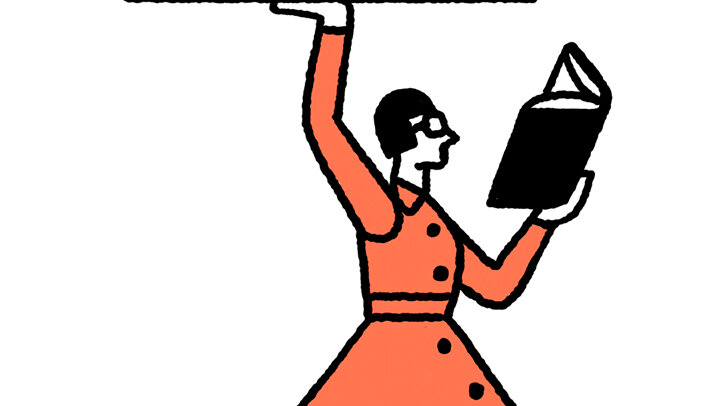
The last year has seen expanded options for buying books online, as more bookstores have developed websites, and e-commerce sites like Bookshop.org gain traction. But massive retailers like Amazon continue to dominate the bookselling business, and readers may be torn between the desire to support local bookstores and the convenience and price of online delivery giants. Here, booksellers and literary agents offer advice on how to evaluate your book buying options.
If you want to support up-and-coming authors
For those who want to discover and support new writers, rather than waiting for splashy releases, independent bookstores tend to be a better option. Authors generally get paid the same amount no matter where their book is sold, said Allison Hill, the chief executive of the American Booksellers Association. But books without large marketing campaigns behind them have a greater chance of being discovered at an independent bookstore. “If you want to support debut authors, or mid-list authors, or certain voices, those books are going to be more apparent in an independent bookstore,” she said.
“Discoverability is essential, and it’s very difficult,” said Regina Brooks, the founder and president of Serendipity Literary Agency in Brooklyn. Black bookstores, in particular, have become a space for making debut authors more visible, she said.
Independent bookstores and Barnes & Noble also host events with authors — the Booksmith in San Francisco hosted 300 events a year before the pandemic, a representative said — that can raise awareness about books and encourage sales. During the pandemic, some stores pivoted to online events; Books Are Magic in Brooklyn, for example, hosts several Zoom events per week.
“If independent bookstores disappeared, authors would be screwed,” said Dennis Johnson, co-founder and publisher of Melville House, a bookstore and press based in Brooklyn. “When there are fewer bookstores in the landscape, there are fewer book sales and fewer people just aware of books.”
Second choice: If you can’t order directly from a bookstore, e-commerce sites like IndieBound and Bookshop.org allow you to purchase from independents, which receive a cut of the profits. Keeping independent bookstores in business enables them to continue to support authors. While Bookshop.org has been a lifeline for bookstores during the pandemic, it’s better to shop directly from an independent bookstore’s website if they have one, said Bradley Graham, co-owner of Politics & Prose in Washington, since they receive the full profit from your purchase. Many bookstores currently offer curbside pick up, which costs them less than shipping and delivering books.
And if you do buy from Amazon, pre-ordering books can be helpful for writers, said Kate McKean, vice president at the Howard Morhaim Literary Agency — particularly since Amazon tends to send more data to publishers about pre-orders, which can indicate a book’s popularity. Amazon designates its best-sellers, which can attract more readers to find and notice books.
“My authors track their Amazon rankings like they’re tracking the Mega Millions numbers,” Ms. Brooks said.
If you want to support publishers
Publishers usually make slightly more money when their books are bought at independent bookstores, said Andy Hunter, the founder of Bookshop.org. That’s partly because retail giants like Amazon offer different rates to different publishers, he explained. A representative from Amazon declined to comment on revenue share between Amazon and publishers.
Supporting small presses, which have strained to weather the industry’s fluctuations during the pandemic, can take the form of shopping from independent bookstores. These stores and presses often have relationships to each other, Ms. Hill said. “Independent bookstores support independent publishers. That’s a tight community,” she said. “The book industry is such a delicate ecosystem. Supporting independent bookstores keeps the ecosystem healthy.”
Some small publishers sell directly from their websites, including Melville House, Akashic Books and Future Tense Books.
Second choice: Barnes & Noble is also a crucial part of the book retail ecosystem, Ms. Hill said, and a crucial outlet for writers and publishers. The key is to “spread it around,” Ms. McKean said. “If we only shop at one retailer, that’s bad for everybody.”
If you want the fastest delivery
It’s hard to beat Amazon on shipping speed. The retail giant offers free domestic shipping between five to eight days of ordering for all users and two-day shipping for Amazon prime members.
Second choice: Any order placed before noon on Bookshop.org will ship that same day, said Mr. Hunter.
If you want the lowest cost
Amazon also largely wins out on price. “Most indie bookstores will be transparent with the fact that oftentimes, we can’t compete with Amazon on prices,” said James Odum, communications director for The Strand bookstore in New York City.
Second choice: Barnes & Noble also tends to offer significant discounts, especially online.
If you want the best selection
For readers seeking the largest possible range of reading options, Amazon features over three million books available online. Book recommendations are surfaced through both an algorithm customized to the individual user and through an updated list from Amazon book editors.
Second choice: “Independent bookstores can order nearly any book anyone wants,” said Mr. Graham. Beyond the breadth of selection, independent bookstores have the benefit of more curated selections, with individual booksellers advocating for their favorite books. “There’s really no algorithm equivalent to it,” said Amy Stephenson, a representative for the Booksmith in San Francisco.
If you want e-books
With its Kindle app and devices, Amazon holds 90 percent of the e-book market, said Mary Rasenberger, executive director of the Authors Guild. But Apple Books has slightly better terms for authors, she continued, which may entice readers.
Second choice: Some smaller retailers offer e-books through Hummingbird and Kobo, which offer a more limited choice but can benefit independent bookstores. “The important thing is that you buy the book,” Ms. McKean said. “However you buy, wherever you buy — buy the book.”






